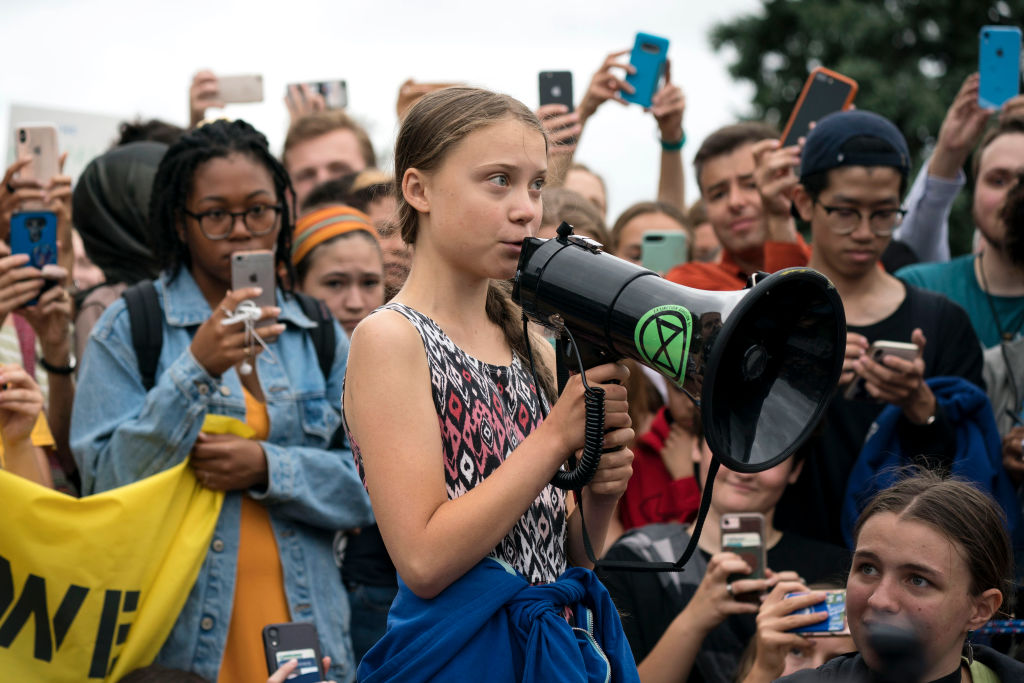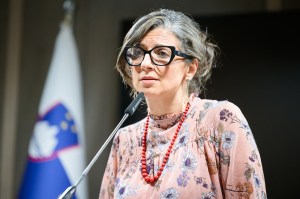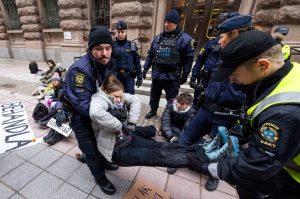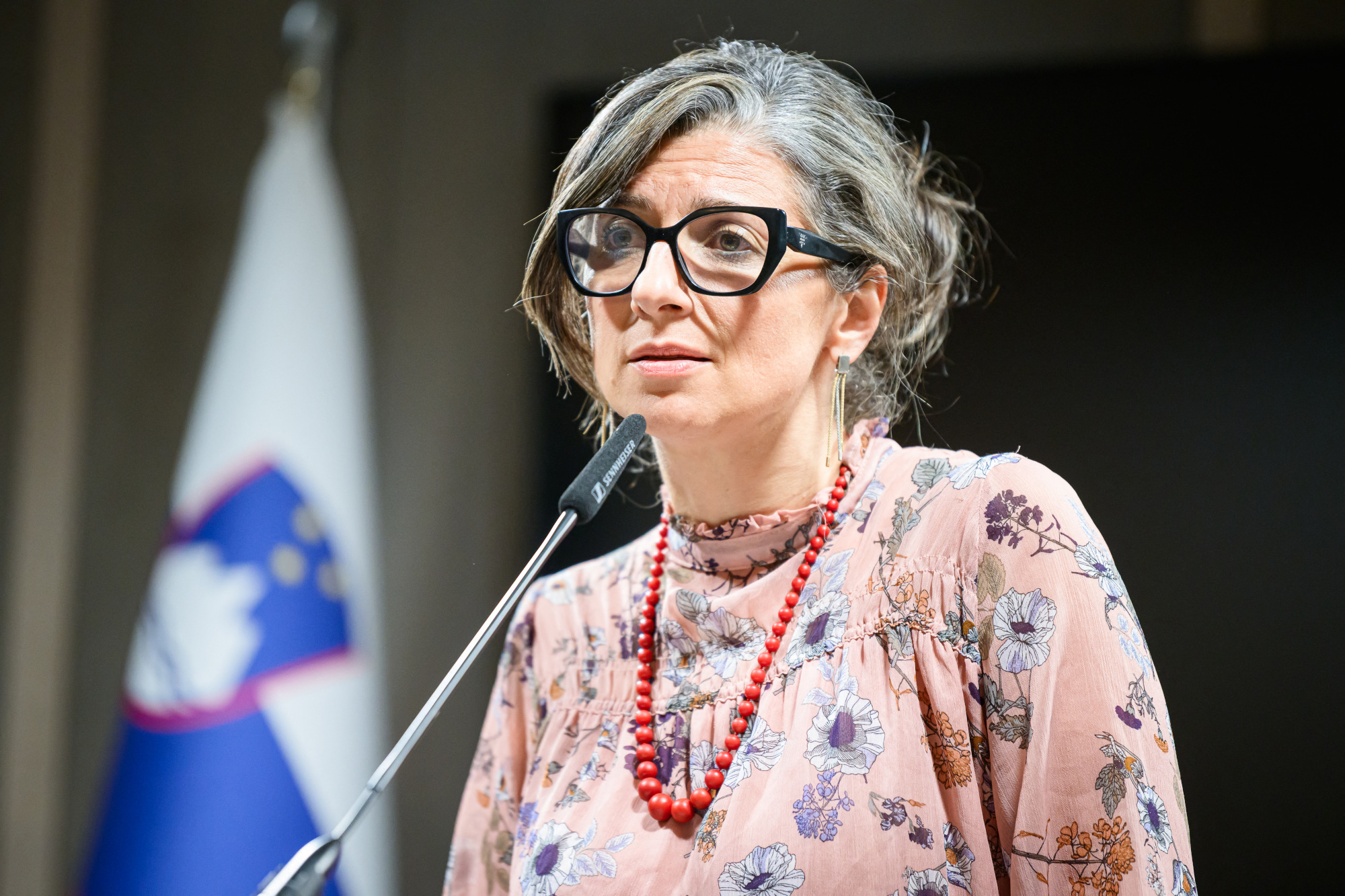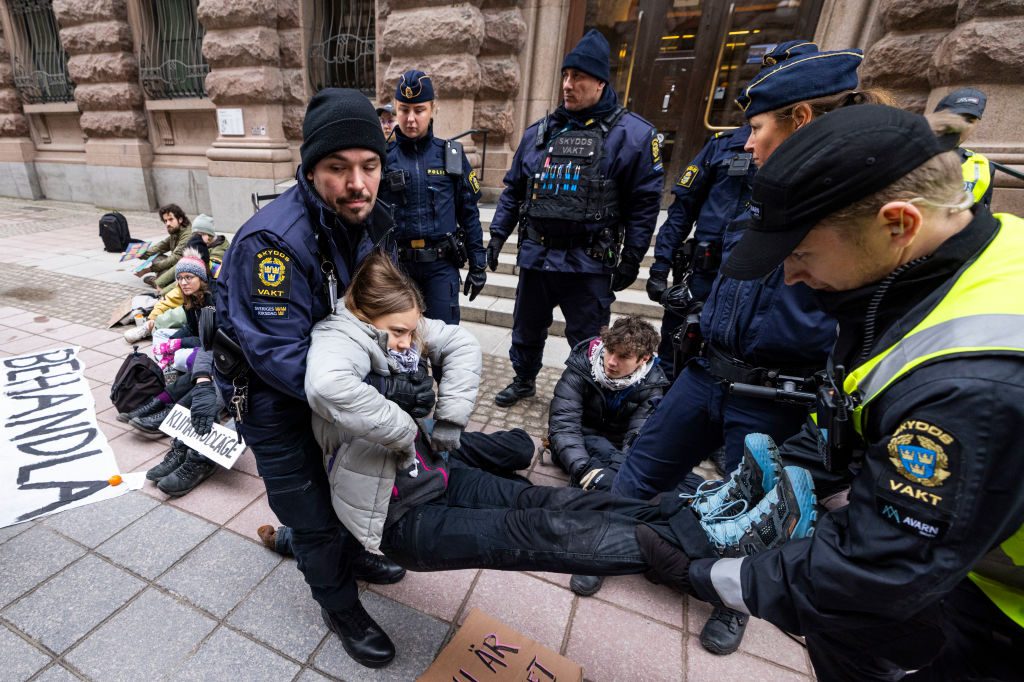When the United Nations General Assembly convened in New York in September, climate-watchers may have noticed a pesky, pigtailed vacuum. Greta Thunberg, who spent the summer of 2019 stalking the East Coast after taking a prince of Monaco’s yacht across the Atlantic, reached her zenith that September — the last time this body met in person — at the Climate Action Summit where she delivered her creepy, memed-into-oblivion “how dare you” speech.
But the chilling little entity straight out of Kubrick was notably absent at this year’s assembly, at a time when the Biden administration is pushing climate hysteria more fervently than ever. In a room full of Jeffrey Epstein’s favorite people, perhaps she’s aged out of relevance — she turned nineteen this year — or maybe it’s her message that’s no longer in vogue. The same month her own nation, Sweden, elected what the papers call a “far-right” government (a catch-all label slapped on any group suspected of not taking money from George Soros). During the Swedish election, the left focused on green energy and global warming; conservatives zeroed in on immigration and crime. 2022 was set to become the worst year on record for gang violence in Sweden and reports of street crime flared up in Swedish headlines just ahead of the election.
The right also had the upper hand on energy, with Swedish voters drawn away from their leftist parties, especially the Greens, over Europe’s soaring energy prices. Two weeks later, Italy followed suit when it elected Giorgia Meloni prime minister. The Atlantic marked the election of Italy’s first female prime minister by declaring “the return of fascism in Italy.” CNN called Meloni “Italy’s most far-right prime minister since Mussolini.” Ahead of the September 25 election, desperate climate activists staged a sit-in at frontrunner Meloni’s Rome office. Their hissy-fit fell on deaf ears; democracy was inconveniently on the march across the continent as voters expressed their waning interest in climate gospel when faced with more pressing daily issues.
Vladimir Putin remains the borscht-colored elephant in the room. Sanctions on Russia following Putin’s invasion of Ukraine have Europeans scrambling. Winter is coming and the continent needs gas. Deutsche Bank has warned that Germans may have to switch to burning wood to keep their homes warm. Amid the crunch, Romania, Estonia and Finland have amped up clearcutting ancient forests to harvest trees for power. As temperatures began to cool, the video platform Twitch blocked the channel of a Russian man who was broadcasting a 24-hour stream of his gas stove on full blast to taunt Europeans. In late September, Viktor Orbán, the conservative prime minister of Hungary, announced his nation would hold a referendum on the European Union sanctions imposed on Russia, saying “the sanctions were not decided democratically, but were decided by Brussels bureaucrats and European elites.”
As the popularity of her signature issue proves as volatile as the weather itself, Thunberg may be stepping back to rebrand as a more general-use left-wing scold. In 2021, she threatened to boycott the UN climate summit, COP26 in Glasgow, over something called “vaccine inequality.” While the last two years did prove without question that not all vaccines are equal (in safety and effectiveness), Thunberg’s hubbub instead had something to do with rich nations not providing enough of their vaccines to poor countries. She ended up attending the summit in Glasgow anyway but left early, telling a crowd outside the gathering that global warming was the result of a system based on “the idea that some people are worth more than others” and attention should instead focus on “root causes.”
It’s a slippery, inevitable slope from save the polar bears to the white man makes the weather and it’s racist. Polar bears, for one, are doing great. There are nearly three times more alive in the wild today than when we began tracking them in the 1960s. This explains why you never hear about them anymore unless you live in Churchill, Manitoba. Humans, too, are faring well, on track to reach population 8 billion later this century. Meanwhile, Thunberg, in the two-hundred-somethingth week of her school strike, is going to need more stable speaking engagements and social justice is a-callin’. As Politico noted recently, Thunberg “is being driven by a different message: listen to the most vulnerable — and help them build the fair future they demand.”
Either that or the climate bosses, sensing their best way to maintain power is obfuscation, have put their teenage puppet on the backburner. Four days after the UN General Assembly concluded in New York, a few blocks west in Central Park, House Speaker Nancy Pelosi appeared onstage at a music festival to lecture attendees about global warming. Dressed in all white (after Labor Day, too!) she was met with boos and groans from a crowd of thousands. The shaky old crone, shrill voice warbling over the jeers, was not expecting this rebuff from young people in the heart of liberal New York City. This was supposed to be the climate base — and the consternation on Pelosi’s face seemed to say it all: how dare you?
This article was originally published in The Spectator’s November 2022 World edition.



